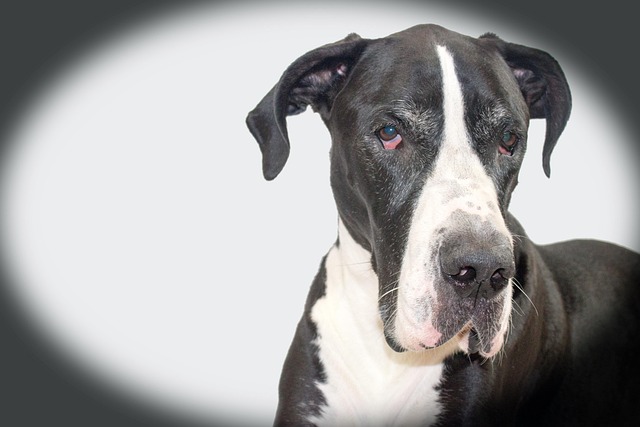
How do i train my dog to be obedient?
Watching your dog dart across the park ignoring your calls isn’t just frustrating—it can put them at risk near busy streets or public spaces.
When we joyfully welcome a puppy as a new member of our family, its furry appearance and innocent gaze instantly melt our hearts. However, the accompanying problem of puppies using the toilet, especially at night, often causes headaches for many poop scoopers. We all long to find effective ways to solve the problem of cute little babies dirtying their environment at night due to uncontrollable bowel movements, or sleeping poorly due to concerns about their toileting. In fact, as long as we master scientific methods, pay enough patience and care, it is not difficult to train puppies to use the toilet at night. This not only makes our lives more tidy and orderly, but also helps puppies develop good habits and promote their healthy growth.
Firstly, understanding the physiological characteristics of puppies is the foundation for nighttime toileting training. Puppies' bladder and intestinal control abilities have not fully developed, and they cannot hold their bladder and intestines for as long as adult dogs. Generally speaking, puppies may need to defecate every 2-3 hours when they are 2-3 months old; As they age, their ability to control bowel movements increases by 4-6 months of age, but they may still need to defecate 1-2 times at night. Moreover, the sleep schedule of puppies is different from that of humans. They usually require more sleep and may wake up at night to play or feel hungry, which also increases the likelihood of using the toilet at night.
In order for puppies to better control their bowel movements at night, we need to establish a regular daily routine for them. During the day, it is important to feed puppies regularly, usually 3-4 times a day, with moderate amounts per feeding to avoid overfeeding or hunger. After feeding, take the puppy to a fixed toilet location, such as a bathroom or outdoor lawn, to develop the habit of defecating in a fixed place. At the same time, it is important to observe the signals of the puppy's defecation, such as constantly sniffing the ground, spinning, and feeling uneasy. Once these signals are detected, it should be taken to the restroom in a timely manner.
At night, we can gradually adjust the sleeping and toileting time of puppies based on their age and bladder control ability. For 2-3 month old puppies, it may be necessary to wake them up every 2-3 hours at night and take them to a restroom for defecation. As puppies grow older, the time interval for waking up can be gradually extended, such as waking up every 4-5 hours when they are 4-6 months old. When waking up a puppy, softly call its name and gently pick it up to avoid excessive fright.

Preparing a comfortable and quiet sleeping environment for puppies is also very important. You can prepare a warm and soft dog house for it, place it in a quiet and dimly lit place, so that it can sleep peacefully. A urine pad can be placed next to the kennel to prevent puppies from accidentally defecating at night. If a puppy wakes up at night, do not immediately play or feed it. Instead, take it to a restroom to defecate, and then let it return to the kennel to continue sleeping.
When a puppy successfully defecates at a designated location at night, rewards and praise should be given promptly. You can praise it in a gentle tone, such as "so well behaved" or "really smart", and give it some small snacks as a reward. Puppies are very intelligent animals that can understand their behavior as correct through rewards and compliments, gradually developing good nighttime toileting habits.
On the contrary, if a puppy accidentally dirts the environment at night, do not punish it. Punishment will only make puppies feel fearful and confused, and may even make them resistant to toilet training. But it is necessary to clean it up in a timely manner, keep the environment clean, and then take it to the toilet to let it know where to defecate correctly.
Training puppies to use the toilet at night is a process that requires patience and time. Every guidance and companionship is our deep love and responsibility towards the puppy. In this process, we may encounter various difficulties and setbacks, but as long as we persist and guide the puppy with scientific methods and full love, it will gradually learn to control bowel movements at night and develop good habits. When we see puppies sleeping peacefully at night and no longer being disturbed by toilet problems, we feel immensely gratified and proud because it is a beautiful witness of our growth together with puppies. Let us accompany the puppy through this important stage of growth with love and patience, and create more warm and beautiful memories together.
share

Watching your dog dart across the park ignoring your calls isn’t just frustrating—it can put them at risk near busy streets or public spaces.

New puppy owners often find themselves rushing to clean up accidents before they set in, and that’s where puppy pad training becomes a game-changer.

If you've noticed your dog's waistline disappearing and your veterinarian has mentioned those few extra pounds, your first instinct might be to simply reduce the amount of food in their bowl.

Training a dog to use a designated spot indoors isn’t as daunting as many new owners fear, but it does take consistency and an understanding of your pet’s needs.

That moment of dread on a walk is all too familiar for many new dog owners. You see another dog approaching down the sidewalk of your neighborhood

If the sight of another dog on your neighborhood walk makes your heart sink as your own dog erupts into a frenzy of barking and lunging, you're not alone.